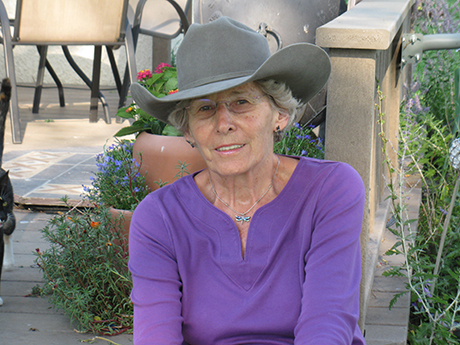Life never treated him easy. As the oldest child in a family living in a desolate corner of the Great Basin, Lige Langston never saw the inside of a schoolhouse till he was 9, when they moved to Reno so the children could get some schooling. That adventure ended at 15, when his Pa needed him to help deliver a herd of horses from Reno to Stockton, California. Pa was already sick, but never said. He got bad along the trail. Lige got him to a hospital, where he died. The youngster finished the delivery alone, took the money back to Reno for his Ma. They kept the family together by scrubbing floors, tending gardens, and taking in laundry, but his heart was always with the horses.
Lige got a ranch job, proved his skills as a buckaroo, and became known as a horseman. In the early years, he rodeoed a little, but mainly worked ranches, gentled horses that no one else had been able to handle, and learned the land; what it made of a man, and what a man might make of it. His home was whatever bunkhouse or line camp belonged to the current boss; sometimes in a wagon, or under the stars. If he got too badly beat up in some horse related incident, he recovered while living with a sister, or maybe the boss gave him chore duty till he could sit a saddle again.
Lige had bad luck with women. His first wife tended toward the honky-tonks. The marriage was short, but he probably never got completely over her. Number two was a widow with sons. She was careful with money, considered it her money and, after forty-two years, died, leaving everything to her sons, perhaps as revenge for knowing there was a part of Lige that would never belong to anything but the land and horses.
But Lige still had the horses, and the reputation of keeping his word. Years alone in tumbledown bunkhouses had given him time to develop skills with what he had at hand; rawhide and horsehair. It was still big country where a living was made with long ropes and horse gear, and he was back to living in line shacks. There was generally some buckaroo hanging around wanting a bosal, reins, or hackamore made. Eventually, some of his pieces ended up in museums but I doubt there was much money in it for him. He did it for the satisfaction of making something beautiful to be used for the work he had enjoyed all his life.
After Lige was gone, his compadres paid him the highest compliment a desert man can have. “He always rode the horse he was on.” They weren’t just speaking of equines.
My friend, Linda Hussa’s book about Lige is titled, Sweet Iron. She knew Lige well and, being a child of the desert, probably understood him better than most. Lige’s life made me think about my dad, who also had to quit school at 15 to help his father on the ranch. Like Lige, Dad belonged mostly to the land and himself, but he was a life-long learner and one of the smartest people I’ve ever known. He married a good woman who never understood him, any more than he understood her, but they both rode the horse they were on and taught me to do the same. I don’t know how much of that I was able to pass along but I hope a little of it sticks.
Meet me here next week and do your best to ride the horse you’re on.

